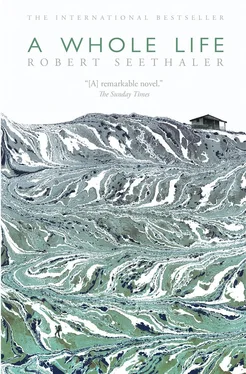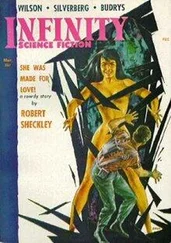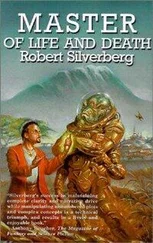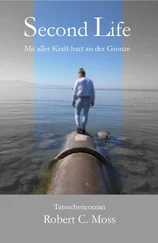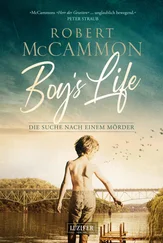Robert Seethaler - A Whole Life
Здесь есть возможность читать онлайн «Robert Seethaler - A Whole Life» весь текст электронной книги совершенно бесплатно (целиком полную версию без сокращений). В некоторых случаях можно слушать аудио, скачать через торрент в формате fb2 и присутствует краткое содержание. Год выпуска: 2015, Издательство: House of Anansi Press Inc, Жанр: Современная проза, на английском языке. Описание произведения, (предисловие) а так же отзывы посетителей доступны на портале библиотеки ЛибКат.
- Название:A Whole Life
- Автор:
- Издательство:House of Anansi Press Inc
- Жанр:
- Год:2015
- ISBN:нет данных
- Рейтинг книги:4 / 5. Голосов: 1
-
Избранное:Добавить в избранное
- Отзывы:
-
Ваша оценка:
- 80
- 1
- 2
- 3
- 4
- 5
A Whole Life: краткое содержание, описание и аннотация
Предлагаем к чтению аннотацию, описание, краткое содержание или предисловие (зависит от того, что написал сам автор книги «A Whole Life»). Если вы не нашли необходимую информацию о книге — напишите в комментариях, мы постараемся отыскать её.
Set in the mid-twentieth century and told with beauty and tenderness, his story is one of man's relationship with an ancient landscape, of the value of solitude, the arrival of the modern world, and above all, of the moments, great and small, that make us who we are.
A Whole Life — читать онлайн бесплатно полную книгу (весь текст) целиком
Ниже представлен текст книги, разбитый по страницам. Система сохранения места последней прочитанной страницы, позволяет с удобством читать онлайн бесплатно книгу «A Whole Life», без необходимости каждый раз заново искать на чём Вы остановились. Поставьте закладку, и сможете в любой момент перейти на страницу, на которой закончили чтение.
Интервал:
Закладка:
* * *
After his return home Egger initially lived behind the newly erected school building, in a wooden shack that the local authority, with the mayor’s benevolent support, made over to him. The mayor was no longer a Nazi these days; geraniums hung outside the windows again instead of swastikas, and in other respects, too, much in the village had changed. The road had got wider. Motor vehicles rattled past many times a day, often at quite short intervals, and the stinking, smoking trucks, those old diesel monstrosities, were increasingly seldom among them. Shining automobiles of every colour came hurtling in from the top of the valley, spitting out day-trippers, hikers and skiers onto the village square. Many of the farmers rented out guestrooms, and the chickens and pigs had disappeared from most of the sheds. Skis and hiking poles now stood in their place, and the pens smelled of wax instead of chicken and pig shit. The Golden Goat had acquired competition. Every day the landlord of the Goat would work himself into a lather again about the Mitterhofer guesthouse that had recently been built across the way, with its resplendent lime-green facade and the sign above the door offering shiny words of welcome. He hated old Mitterhofer. He refused to understand how a cattle farmer could suddenly hit on the idea of setting aside his pitchfork and providing accommodation for tourists instead of cows. ‘A farmer is a farmer and will never be an innkeeper!’ he said. Secretly, though, he had to admit that the competition wasn’t bad for business: on the contrary, it invigorated it. When he eventually died in the late Sixties, a scatterbrained old man, he was able to bequeath to his only daughter, in addition to the Golden Goat, another three guesthouses, several hectares of land, the bowling alley under the stables of the former Loidolt farm, and shares in two chair lifts, which, although she was well on the wrong side of forty, turned this unmarried and rather obdurate woman into one of the most desirable catches in the valley.
Egger accepted all these changes with silent amazement. At night he would hear in the distance the metallic creak of the marker poles on the slopes — or pistes, as they were now called — and in the morning he was often woken by the clamour of the schoolchildren behind the wall at the head of his bed. This would break off abruptly the moment the teacher entered the classroom. He remembered his own childhood, his few years of school, which at the time had stretched out endlessly before him and now seemed as brief and fleeting as the blink of an eye. All in all, time bewildered him. The past seemed to curve in all directions, and in memory the sequence of events became confused, or would constantly reform and re-evaluate itself in peculiar ways. He had spent far more time in Russia than he had with Marie, yet the years in the Caucasus and Voroshilovgrad seemed scarcely longer than his last few days with her. His time with the cable cars shrank in retrospect to a single season, whereas he felt as if he had spent half his life hanging over an ox yoke looking at the ground, his little white bottom stretched towards the evening sky.
A few weeks after his return, Egger came across old Kranzstocker. He was sitting in front of his farm on a rickety milking stool, and Egger greeted him as he walked past. Kranzstocker slowly lifted his head: it was a while before he recognized Egger. ‘You,’ he said, in an ancient, croaking voice. ‘You, of all people!’ Egger stopped and looked at the old man, sitting there, slumped, peering up at him from yellow eyes. The hands on his knees were thin as kindling; his mouth hung half open and seemed to be entirely devoid of teeth. Egger had heard that two of his sons had not returned from the war, whereupon he had tried to hang himself from the pantry doorframe. The brittle wood had not withstood his weight and Kranzstocker had survived. From then on the old farmer had spent his days yearning for death. He saw Death crouched on every corner, and each evening he was convinced that eternal rest would descend on him with the darkness. But he always woke again the next day, even sicker, more morose, more corroded by his yearning than before.
‘Come over here,’ he said, craning his head forwards like a chicken. ‘Let’s see what you look like!’ Egger took a step towards him. The old man’s cheeks were sunken, and his hair, once gleaming black, now hung from his skull as white and thin as cobwebs. ‘It’ll soon be over for me, Death misses no one,’ he said. ‘Every day I hear him coming round the corner, but every time it’s just one of the neighbour’s cows or a dog or the shadow of some other creeping creature.’ Egger stood as if rooted to the spot. For a moment he felt as if he were a child again, and he was afraid the old man might get to his feet and rise up tall as a mountain. ‘And so today it’s you,’ the farmer continued. ‘Someone like you just comes round the corner, and others don’t come anywhere any more. That’s justice for you. I was Kranzstocker once, and now look at me, what’s become of me: a heap of rotting bones with just enough life left in them not to crumble to dust on the spot. All my life I walked upright, I bowed to the Lord and no one else. And how does the Lord thank me? By taking two of my sons. By tearing my own flesh and blood from my body. And because that still isn’t enough for him, the son of a bitch, because he still hasn’t squeezed the last drop of life out of an old farmer like me, he lets me sit outside my farm every day from morning till night waiting for Death. So here I sit, wearing my backside to the bone, but the only things that come round the corner are a couple of cows and a couple of shadows and you — you, of all people!’
Kranzstocker looked down at his hands, at his thin, mottled fingers. His breath came heavily, with a quiet rattle. Suddenly he raised his head, and at the same time one of the hands shot out of his lap and grabbed Egger’s forearm.
‘You can do it now!’ he cried, his voice trembling with agitation. ‘You can strike me now! Strike me, you hear? I’m begging you, strike me! Please, just strike me dead!’ Egger felt the old man’s fingers digging into his arm, and an icy fear gripped his heart. He pulled away and took a step back. Kranzstocker dropped his hand and sat there silently, his eyes again fixed on the ground. Egger turned and left.
As he walked along the road that ended just behind the village, he had a strange empty feeling in his stomach. Deep down, he felt sorry for the old farmer. He thought of the milking stool and wished he could have a chair and a warm blanket, and at the same time he wished he could have death. He went on along the narrow path up the mountain, all the way to the Pichlersenke. Up here the ground was soft and the grass short and dark. Drops of water trembled on the tips of the blades, making the whole meadow glitter as if studded with glass beads. Egger marvelled at these tiny, trembling drops that clung so tenaciously to the blades of grass, only to fall at last and seep into the earth or dissolve to nothing in the air.
It was only many years later that Kranzstocker found release, on an autumn day in the late Seventies, as he sat like a shadow listening to the radio in his room. In order to understand anything at all he had leaned his body right over the table and was pressing his left ear against the speaker. When the presenter announced that the next programme would be a concert of brass-band music the old man gave a sudden cry, pounded his fist repeatedly against his ribs, and finally slid off the chair, stiff and dead, to the music’s tinny, rhythmical accompaniment.
During the funeral it bucketed down. The road was flooded with ankle-deep mud and the funeral procession could make only slow progress. Egger, himself by this time over seventy, walked right at the back. He thought about the farmer, who had spent all his life thrashing his own happiness away from him. They were walking in the pouring rain past the little restaurant in what used to be the Achmandl farm when a child’s laughter rang out, loudly and with remarkable clarity. One of the windows was ajar and flickering brightly. The landlord’s little son was sitting in the room in front of an enormous television set, his face right up against the screen. The reflection of the images danced across his forehead; he was clutching the antenna with one hand and slapping his thighs with the other as he laughed. He was laughing so hard that through the curtain of rain Egger could make out the glistening drops of spittle spraying against the box. He felt an urge to stop and stand there, to press his forehead against the window and laugh along with the boy. But the funeral procession moved on, dark and silent. Egger saw before him the hunched shoulders of the mourners and the rain running down them in thin rivulets. At the head of the procession the coffin cart rocked like a boat in the gathering dusk as the child’s laughter gradually faded away behind them.
Читать дальшеИнтервал:
Закладка:
Похожие книги на «A Whole Life»
Представляем Вашему вниманию похожие книги на «A Whole Life» списком для выбора. Мы отобрали схожую по названию и смыслу литературу в надежде предоставить читателям больше вариантов отыскать новые, интересные, ещё непрочитанные произведения.
Обсуждение, отзывы о книге «A Whole Life» и просто собственные мнения читателей. Оставьте ваши комментарии, напишите, что Вы думаете о произведении, его смысле или главных героях. Укажите что конкретно понравилось, а что нет, и почему Вы так считаете.
